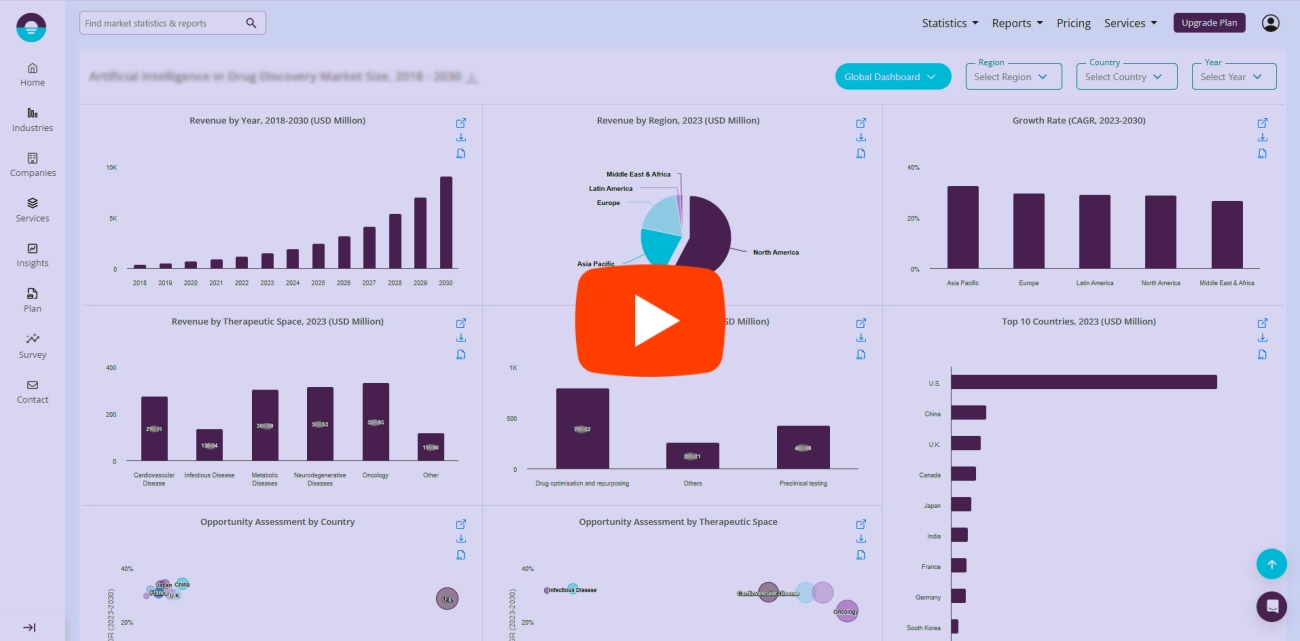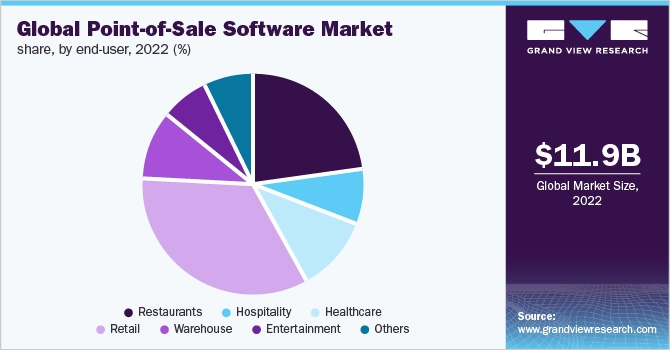The Power of POS Systems in the Global Market for B2B Enterprises

The Explosive Growth of the Global POS Market

Point of Sale (POS) systems are reshaping how businesses operate worldwide, especially in the B2B sector. But why is the global POS market growing so rapidly, and what does this mean for B2B enterprises? Let’s break down the key drivers, market size, regional trends, and the technological innovations fueling this expansion.
Key Drivers Boosting POS Market Growth
The global POS market is projected to grow at a compound annual growth rate (CAGR) of over 10% through 2028, driven primarily by:
- Cloud POS integration: Moving POS to the cloud has unlocked real-time data access, scalability, and lower IT costs, making it easier for businesses to adopt and expand POS solutions faster than ever.
- Mobile POS for enterprises: The rise of mobile POS devices has enabled flexible sales environments and improved field operations for wholesalers and large distributors.
- Increased demand for secure wholesale payment systems: Cybersecurity concerns have pushed companies towards POS solutions with enhanced fraud mitigation and data protection capabilities.
- Shift to Omnichannel B2B sales: Integrating multiple sales channels through unified POS systems enables smoother processes and a better customer experience, especially vital in wholesale and distribution sectors.
Market Size and Regional Dominance
North America continues to lead the global POS market with a significant market share fueled by:
- High adoption of AI driven transaction analytics and advanced inventory tracking technology.
- A robust technology infrastructure facilitating rapid deployment of cloud-based POS solutions.
- Presence of major enterprise CRM systems integrated with POS, enabling deeper customer insights.
Meanwhile, Asia-Pacific is the fastest-growing region, driven by:
- Emerging economies embracing digital payment ecosystems.
- Local enterprises leveraging scalable POS hardware suppliers to meet rising demand.
- Significant investments in retail POS trends across both B2B and B2C segments.
Technological Catalysts Powering Market Expansion
Tech innovation remains at the heart of this POS revolution. Here’s what sets modern POS systems apart:
- AI driven transaction analytics provide predictive insights that help B2B companies optimize pricing, inventory, and customer targeting.
- Cloud-based solutions ensure seamless updates, multi-location management, and remote accessibility, crucial for enterprise rollouts.
- Integrated barcode scanner wholesale technology speeds up inventory tracking and order fulfillment.
- Enhanced security features in global POS systems protect sensitive data across multiple payment methods.
This rapid evolution highlights why POS systems are no longer just cash registers but strategic assets driving growth for B2B enterprises globally.
For a deeper dive into secure POS features, check out security features in global POS systems. If you want to explore hardware options that integrate payment systems smoothly, see POS hardware with integrated payment systems.
In short, the global POS market’s explosive growth is a game changer for B2B businesses, offering scalable, secure, and smart solutions tailored for today’s fast-paced commerce.
How POS Systems Transform B2B Enterprises with Core Benefits at Scale
In today’s competitive market, POS systems have become essential tools for B2B enterprises looking to streamline operations and boost efficiency. These systems go beyond just processing transactions – they drive significant improvements across supply chain management, security, and data utilization, all of which are crucial for scaling businesses in the US and globally.
Streamlined Supply Chain and Inventory Management
One of the biggest advantages of a modern POS system in B2B is its impact on supply chain and inventory tracking. With integrated B2B inventory tracking features, companies can:
- Maintain real-time stock visibility to avoid shortages or overstock
- Automate reordering processes based on sales data and demand forecasts
- Manage multiple warehouses and distribution centers seamlessly
- Coordinate cross-channel inventory for omnichannel B2B sales
This level of control reduces costly errors and helps businesses stay agile in fast-moving markets. For wholesalers and distributors, these features are especially vital, enabling smooth rollouts and efficient order fulfillment at scale.
Enhanced Transaction Security and Fraud Mitigation
Security is a top priority for B2B transactions where payment volumes and values tend to be higher. Advanced POS systems enhance security through:
- Secure wholesale payment systems capable of handling large and complex transactions
- Encryption and tokenization technologies to protect sensitive payment data
- Multi-factor authentication to reduce fraud risks in cross-border deals
- Real-time fraud detection powered by AI-driven transaction analytics
These security features not only reduce losses but build trust with business clients who expect safe and reliable payment processing every time.
Data Driven Decision Making and Customer Insights
The true power of a POS system comes from its ability to collect and analyze vast amounts of data. B2B enterprises benefit from this by gaining:
- Detailed purchasing patterns and customer behavior insights
- Sales and inventory trends to inform pricing and promotions
- Integration with enterprise CRM with POS systems for better client management
- Predictive analytics to optimize product lines and improve demand planning
By leveraging these insights, businesses can make smarter decisions, customize offerings, and ultimately increase revenue while maintaining operational efficiency.
For those interested in how POS hardware supports wholesale pricing strategies, learn more about scalable options from trusted POS hardware suppliers here. Also, see how distributors use POS systems to improve their workflows here.
B2B POS Systems Applications From Wholesale to Enterprise Rollouts
When it comes to B2B enterprises, POS systems play a crucial role beyond retail checkout—they’re the backbone for wholesale and large-scale distribution operations. These systems are crafted to handle complex inventories, bulk transactions, and multi-location operations, all while integrating smoothly with existing business tools.
Wholesale and Distribution Use Cases
Wholesale businesses often face unique challenges like managing vast inventories, tracking shipments, and handling large orders with varied payment terms. B2B inventory tracking through POS systems offers real-time updates, automated reorder alerts, and batch tracking, drastically reducing stockouts and overstock scenarios.
- Streamlined bulk order processing speeds up sales cycles.
- Secure wholesale payment systems reduce fraud risks common in large transactions.
- Integration with ERP and CRM platforms ensures sales, finance, and customer management teams stay aligned.
Explore more on reliable wholesale POS options in our wholesale cash register systems guide.
Multi Channel B2B Integration
Today’s B2B buyers expect seamless experience across multiple channels—whether ordering online, via mobile POS for enterprises, or through direct sales reps. Advanced POS solutions support omnichannel B2B sales by consolidating orders from different touchpoints into a single backend system.
Key benefits include:
- Unified customer records via enterprise CRM integration.
- Centralized inventory visibility preventing double sells.
- Consistent pricing and discounts across channels.
Multi channel integration supports flexible buying behaviors and accelerates order fulfillment, keeping your business competitive.
Challenges and Mitigation
Rolling out POS systems at an enterprise B2B level isn’t without hurdles. Some common challenges include:
- System complexity that can overwhelm staff.
- Integration issues with legacy software.
- Data security concerns in high-volume transactions.
To mitigate these, focus on:
- Selecting scalable POS hardware suppliers that offer tailored support.
- Prioritizing cloud POS integration for smoother updates and flexibility.
- Training teams extensively and choosing user-friendly interfaces.
- Implementing strong encryption and fraud detection tools, such as AI driven transaction analytics.
Understanding these factors helps businesses not only deploy POS systems effectively but also future-proof their operations.
For a deeper dive on POS systems suited for distributors, check out our 13 best POS systems for distributors overview.
Future Proofing B2B with Next Gen POS Trends to Watch
As the global market evolves, next generation POS systems are no longer just a convenience—they’re essential for B2B enterprises aiming to stay competitive. The future of POS tech is focused on innovation, sustainability, and tighter compliance, especially given the dynamic needs of the United States market and beyond.
Emerging Innovations in POS Systems
B2B companies should keep an eye on several rising technologies transforming POS functionality:
AI Driven Transaction Analytics
Artificial intelligence is powering smarter insights from every sale, helping businesses predict demand, optimize inventory, and detect fraud earlier than ever. This means smoother operations, fewer losses, and better customer service.
Mobile POS for Enterprises
Mobility is key. Mobile POS devices allow sales teams and inventory managers to work from anywhere—whether in warehouses, trade shows, or on the road. This mobility supports omnichannel B2B sales, syncing data in real-time for consistent order management.
Cloud POS Integration
Cloud-based platforms facilitate seamless updates, data access across locations, and scalability. This is perfect for enterprises requiring scalable POS hardware suppliers and flexible infrastructure that grows with their business.
Sustainability and Compliance in Global Markets
With increasing regulatory requirements and consumer focus on sustainability, POS systems are stepping up to meet these needs:
Sustainable Hardware and Energy Efficiency
New POS devices are designed with eco-friendly materials and lower energy use. Businesses can reduce their carbon footprint without compromising performance, aligning with broader corporate responsibility goals.
Secure Wholesale Payment Systems and Data Privacy Compliance
The US market has strict standards on data security (PCI-DSS, CCPA), and POS providers are evolving to ensure full compliance. Enhanced encryption and secure payment gateways protect sensitive B2B transactions, building trust with wholesale partners.
Regulatory Adaptability
Cloud POS and software updates make it easier for businesses to comply with changing tax codes and trade regulations across regions, helping avoid costly penalties.
What This Means for B2B Enterprises
Staying ahead with these next gen POS trends is crucial for:
- Improved Decision Making through real-time AI insights
- Streamlined Multi Channel Operations with mobile and cloud POS solutions
- Enhanced Security that protects wholesale and enterprise transactions
- Meeting Sustainability Goals while complying with global regulations
For US-based B2B enterprises, adopting these innovations ensures you’re ready for the future—keeping your supply chain efficient, your data secure, and your operations sustainable in an increasingly complex market.
